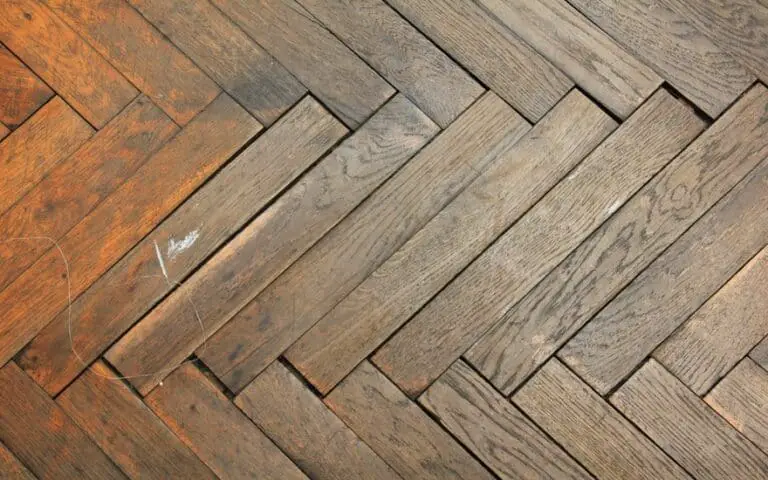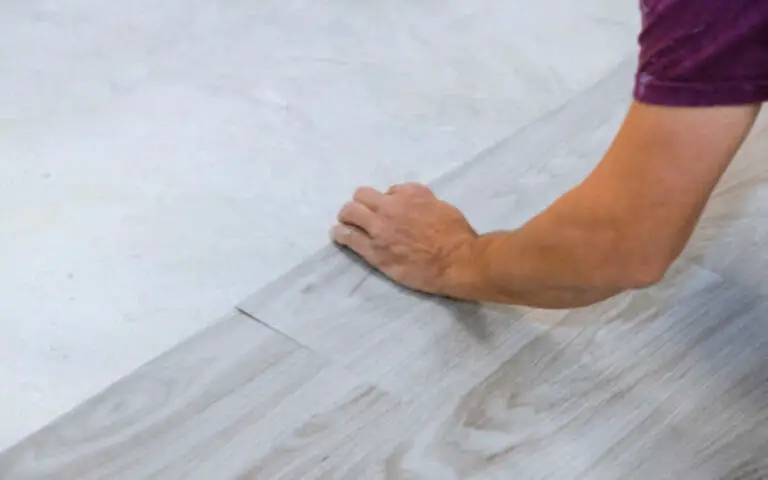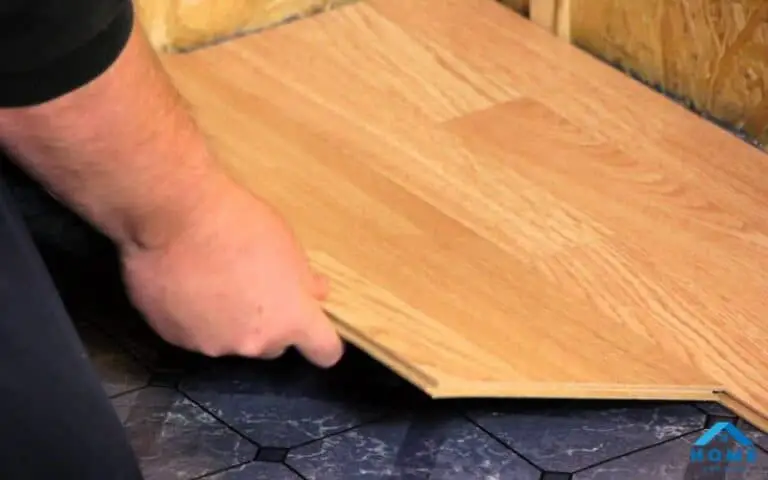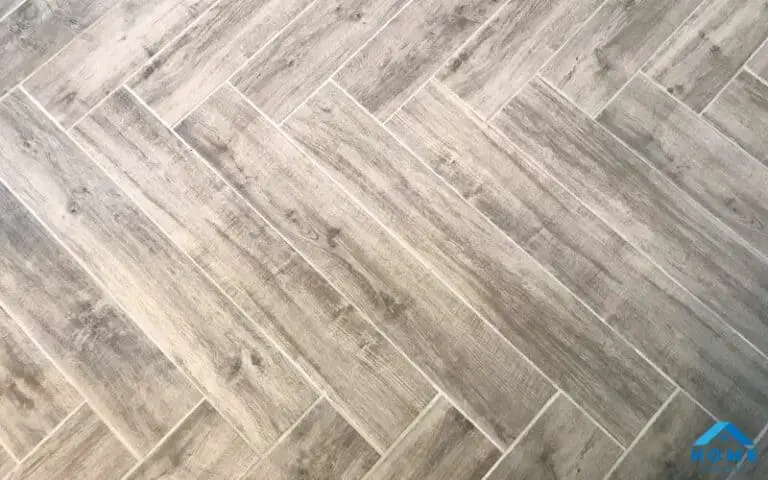Are you renovating your bathroom and looking for the best flooring option? If so, then you’ve come to the right place. In this blog post, we’ll discuss the different types of flooring and what makes them perfect for an upstairs bathroom. Read on to find out which flooring is best for your needs!
What is the best flooring for a bathroom?
When picking out the best flooring for your bathroom, there are a few important factors to consider. Tile is one of the most popular bathroom options as it is resilient, waterproof, and comes in various colors and designs. Sheet vinyl is also a great choice for heavily used bathrooms because of its durability and affordability.

Additionally, laminate flooring is a better bathroom flooring choice than solid hardwood. Lastly, vinyl plank flooring is another great option for second-floor flooring because it is durable, water-resistant, and scratch-resistant. No matter which type of flooring you pick, look for waterproof and non-porous materials to ensure your bathroom stays dry.
Best Flooring for Bathrooms: 7 Great Options
There is a wide variety of wonderful flooring alternatives available to choose from when it comes to bathroom design. Whether you’re looking for something durable and waterproof, or something that looks great, there is an option to suit your needs. Options:
1. Vinyl
Vinyl is a great option for bathrooms. It’s durable, waterproof, and comes in various colors and designs. Vinyl plank flooring is even more resilient and can withstand heavy foot traffic. Sheet vinyl is also a great option for busy bathrooms.
It offers all the same benefits as vinyl plank flooring but with the added advantage of being easier to install. Vinyl plank and sheet vinyl are both excellent choices for your bathroom flooring.
2. Laminate
Laminate flooring is also a great choice for a bathroom. It looks attractive and is easy to install, making it a popular option for those who want a quick renovation. It is also scratch and stain resistant and can withstand significant amounts of moisture.
Choosing a laminate floor with a high-quality finish treated with a water-resistant sealant is important to help prevent water damage.
3. Ceramic Tile
A ceramic tile is a great option for bathrooms, as it’s resilient, waterproof, and available in various colors and designs. It’s also generally less expensive than other hard surface options, making it an ideal choice for people looking for an affordable yet stylish flooring solution.
Porcelain tile is also a great choice, as it’s even more durable and long-lasting than ceramic tile. Both ceramic and porcelain tiles offer a timeless look that can easily be incorporated into any bathroom’s design.
4. Porcelain Tile
Porcelain tile is a great option for bathrooms. It’s highly durable and waterproof and comes in various colors and designs. Porcelain tiles are incredibly easy to clean and maintain, making them a great choice for bathrooms with a lot of use.
They’re also slip-resistant, which is great for safety. They can even be used in wet areas like showers and tubs, so you don’t have to worry about moisture seeping through the flooring.
5. Natural Stone
Natural stone is an excellent choice for a bathroom flooring material. It is elegant, timeless, and durable. Natural stones like marble, granite, and slate are perfect for bathrooms because they are non-porous and provide a slip-resistant surface.
They are also heat resistant and can stand up to frequent use. The only downside is that natural stone can be expensive. However, if you’re willing to invest in quality materials, natural stone flooring can be a great choice for your bathroom.
6. Linoleum
Linoleum is another great option for upstairs bathrooms. It’s extremely durable, water-resistant, and easy to clean. Plus, it’s available in various colors and patterns to fit any style.
Not to mention, linoleum is a relatively inexpensive option compared to other flooring materials. So, if you’re looking for a budget-friendly way to spruce up your upstairs bathroom, this might be the perfect solution!
7. Carpet
If you want a softer, warmer feel in your bathroom, carpet might be an option. However, while it is cozy and comfortable underfoot, it is not the best bathroom flooring option because it is not waterproof and can easily become damaged by moisture.
Additionally, it is more difficult to clean than other materials, making it harder to maintain. Therefore, when selecting the best bathroom flooring, it is important to look for waterproof and non-porous.
Don’t do this in your bathroom.
But, while there are plenty of great bathroom flooring options, there are a few that you should avoid. The carpet might seem like a good choice for an upstairs bathroom, but it could be better. The carpet is highly absorbent, which can quickly become saturated with water from showers and baths.
It can also grow mildew and mold, which is unappealing and potentially hazardous. Keeping it clean is also challenging, so you may replace it sooner than you’d like.
1. Choose Non-Porous Materials
When choosing the best flooring for your bathroom, remember that it should be non-porous. Porous materials such as wood, carpet, and linoleum can absorb moisture and bacteria, making them a bad choice for bathrooms. In addition to choosing non-porous materials, there are a few other things you should avoid doing in your bathroom.
For instance, it’s not a good idea to use wallpaper in a bathroom since it can be damaged by high humidity. You should also avoid installing carpets in your bathrooms since they can become stained and wet easily. Instead, choose a waterproof and non-porous material such as ceramic, porcelain, or vinyl plank flooring for your bathroom.
2. Look for Waterproof Options
When choosing a flooring material for your bathroom, it is important to look for waterproof options. While some materials may be water-resistant, they may be partially waterproof, which could lead to issues down the line.
In addition, it is important to avoid certain types of flooring in your bathroom, such as carpet. Carpet is not ideal for bathrooms as it can become wet, resulting in mold and mildew growth. Choosing non-porous materials such as vinyl, ceramic tile, porcelain tile, or natural stone is best when selecting a flooring material for your upstairs bathroom.
What type of flooring is best for upstairs bedrooms?
When it comes to selecting the ideal flooring for the bedrooms located upstairs, there are many different alternatives from which to pick. Vinyl plank flooring provides a great balance of affordability and durability, while ceramic and porcelain tiles offer a classic look and easy maintenance.
Laminate and linoleum are excellent choices for those who want a softer feel underfoot. If you’re looking for something more unique, natural stone or carpet might be the right choice. It’s important to remember to avoid carpets in bathrooms and to choose non-porous materials that are waterproof when choosing to floor any part of the house. With so many options available, you’re sure to find the perfect flooring for your upstairs bedroom.
Summary
When choosing the best flooring for an upstairs bathroom, there are a few things to consider. First, it should be waterproof and non-porous to resist mold and mildew. Vinyl, laminate, ceramic tile, porcelain tile, natural stone, and linoleum are all great options that fit the bill. Carpet is not recommended for bathrooms, as it can get damp and moldy easily.
When choosing to floor upstairs bedrooms, hardwood, laminate, or PVC flooring are great options that look beautiful and are easy to maintain. Marble, granite, or polished concrete floors will look amazing but pricey. Make sure that the flooring you choose for your bathroom and bedroom is long-lasting and resistant to moisture, regardless of your type.






